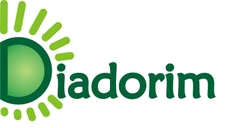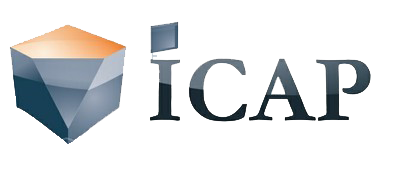Tourism Research Networks
grouping, characteristics and scientific production
DOI:
https://doi.org/10.29149/mtr.v9i1.8216Keywords:
Tourism, Research Groups, Postgraduate, Scientific Production, Tourism ResearchAbstract
This study aims to analyze the performance of research groups linked to Graduate Programs in Tourism. Specifically, it is intended to: identify the scenario of research groups in tourism in Brazil; and understand the configuration of tourism research groups. For this, four research groups were selected, two Brazilians and two foreigners: Tourism, Marketing and Competitiveness (Brazil); Tourism Planning and Management (Brazil); Gender, Entrepreneurship and Social Policy Institute (UK); and Sustainable Planning and Management of Tourism (Spain). This is an exploratory and descriptive research with a qualitative approach. For data collection, bibliographical and documentary research was carried out. It was chosen to work with a secondary source of data, based on information available in the Directory of Research Groups in Brazil, websites of research groups and ResearchGate and CNPq platforms. 44 tourism research groups were found in Brazil, linked to PPGs in the field of Tourism and 133 lines of research. The results point to growth and consolidation of the groups, with 2019 and 2020 being the years with the highest number of registrations, in addition to longevity with the performance of 4 groups for more than 20 years. In relation to the studied groups, differences can be noticed in relation to the number of lines of research, number and category of members, established partnerships and production of the leaders. The results of this study help to understand the conjuncture of the creation, performance and consolidation of research groups in tourism, recognizing them as sources of knowledge of great relevance for tourism.
References
Agnete Vabø, Aina Alvsvåg, Svein Kyvik & Ingvild Reymert (2016). The establishment of formal research groups in higher education institutions. Nordic Journal of Studies in Educational Policy, 2016:2-3, 33896. https://doi.org/10.3402/nstep.v2.33896
Andrade, H.B., de Los Reyes Lopez, E., & Martín, T.B. (2009). Dimensions of scientific collaboration and its contribution to the academic research groups scientific quality. Research Evaluation, 18 (4), 301-311. https://doi.org/10.3152/095820209X451041
Andrade, L. F. S., Macedo, A. S., & Oliveira, M. L. S. (2014) A produção científica em gênero no Brasil: um panorama dos grupos de pesquisa de administração. Revista de Administração Mackenzie, 15 (6), 48-75. https://doi.org/10.1590/1678-69712014/administracao.v15n6p48-75
Conselho Nacional de Desenvolvimento Científico e Tecnológico. (2022). Diretório de Grupos de Pesquisa. http://lattes.cnpq.br/web/dgp
Coordenação de Aperfeiçoamento de Pessoal de Nível Superior. (2019). Documento de Área: Administração Pública e de Empresas, Ciências Contábeis e Turismo. https://www.gov.br/capes/pt-br/centrais-de-conteudo/adm-pdf
Cook I, Grange S., & Eyre-Walker A. (2015). Research groups: How big should they be? PeerJ 3:e989. https://doi.org/10.7717/peerj.989
Cruz, M. M., Oliveira, S. R. A., & Campos, R. O. (2019). Grupos de pesquisa de avaliação em saúde no Brasil: um panorama das redes colaborativas. Saúde Debate, Rio de Janeiro, 43 (122), 657-667. https://doi.org/10.1590/0103-1104201912201
Diniz, D., & Foltran, P. (2004). Gênero e feminismo no Brasil: uma análise da Revista Estudos Feministas. Revista Estudos Feministas, 12(spe), 245–253.https://doi.org/10.1590/S0104-026X2004000300026
Erdmann, A. L., & Lanzoni, G. M. M. (2008). Características dos grupos de pesquisa da Enfermagem brasileira certificados pelo CNPQ de 2005 a 2007. Escola Anna Nery Revista de Enfermagem, 12 (2): 316 – 22. https://doi.org/10.1590/S1414-81452008000200018
Fontana, F. (2018). Técnicas de pesquisa. In: Mazucato, T. (Org.) Metodologia da pesquisa e do trabalho científico. Penápolis: FUNEPE.
Gender, Entrepreneurship and Social Policy Institute. School of Hospitality and Tourism Management (2022). https://www.surrey.ac.uk/school-hospitality-tourism-management/research/gender-entrepreneurship-and-social-policy-institute
Kyvik, S., & Reymert, I. (2017). Research collaboration in groups and networks: differences across academic fields. Scientometrics, 113 (2), 951-967. https://link.springer.com/article/10.1007/s11192-017-2497-5
Lichtnow, D. (2001). Desenvolvimento e implementação de um protótipo de ferramenta para gestão do conhecimento em grupos de pesquisa. [Dissertação de Mestrado, Universidade Federal de Santa Catarina]. Repositório UFSC.
http://repositorio.ufsc.br/xmlui/handle/123456789/80336
Manca, S. (2018). ResearchGate and Academia.edu as networked socio-technical systems for scholarly communication: a literature review. Research in Learning Technology, 26. https://doi.org/10.25304/rlt.v26.2008
Mattar, F. N. (2014). Pesquisa de marketing: metodologia, planejamento, execução e análise. 7. ed. - Rio de Janeiro: Elsevier.
Meira, J. (2014). Estudos de gênero e historicidade: sobre a construção cultural das diferenças. Caderno Espaço Feminino, 27, 202-220.
Mocelin, D. G. (2009). Concorrência e alianças entre pesquisadores: reflexões acerca da expansão de grupos de pesquisa dos anos 1990 aos 2000 no Brasil. Revista Brasileira de Pós-Graduação, 6 (11), 35-64. https://doi.org/10.21713/2358-2332.2009.v6.166
Netto, A. P., Solha, K. T., & De Almeida, M. V. (2009). Relato de Grupo de Pesquisa: “Pesquisa, Educação e Atuação Profissional em Turismo e Hospitalidade”. Revista Turismo em Análise, 20 (3), 578-582. https://www.revistas.usp.br/rta/article/view/14201/16019
Odelius, C.C, & Sena A. C. (2009). Atuação em grupos de pesquisa: competências e processos de aprendizagem. Revista de Administração FACES Journal, 8 (4). 13-31. https://doi.org/10.21714/1984-6975FACES2009V8N4ART162
Oliveira, A. R. de, & Mello, C. F. de. (2014). Indicadores para a avaliação da produtividade em pesquisa: a opinião dos pesquisadores que concorrem a bolsas do CNPq na área de Biociências. Revista Brasileira de Pós-Graduação, 11 (25), 657-678. https://doi.org/10.21713/2358-2332.2014.v11.500
Oliveira, S. R. A. (2019). Redes sociotécnicas e translação do conhecimento. Anais do IHMT. 17(supl2):s97-s104. https://doi.org/10.25761/anaisihmt.266
Pereira, A. S., Shitsuka, D. M., Parreira, F. J. & Shitsuka, R. (2018) Metodologia da pesquisa científica. 1. edição – Santa Maria, RS: Universidade Federal de Santa Maria - UFSM, NTE, e-book.
Planificación y gestión sostenible del turismo. (2022). https://cvnet.cpd.ua.es/curriculum-breve/grp/es/planificacion-y-gestion-sostenible-del-turismo/593
Plataforma Sucupira. Cursos Avaliados e Reconhecidos. (2022). Recuperado de: https://sucupira.capes.gov.br/sucupira/public/consultas/coleta/programa/quantitativos/quantitativoIes.jsf?areaAvaliacao=27&areaConhecimento=61300004
Vilela, N. G. S., Rese, N., & Lourenço, M. L. (2017) Cultura Organizacional no Brasil: um estudo sistemático da relação entre grupos de pesquisa e produção científica nos principais periódicos e eventos em Administração nos anos de 2006 a 2015. Revista de Ciências da Administração, 19 (48), 122-135. https://doi.org/10.5007/2175-8077.2017v19n48p122
Von Wangenheim, C. G., Lichtnow, D., Von Wangenheim, A., & Comunello, E. (2001). Supporting knowledge management in university software R&D groups. International Workshop on Learning Software Organizations, 52-66. 10.1007/3-540-44814-4_7
Zanella, L. C. H. (2013). Metodologia de pesquisa – 2. ed. reimp. – Florianópolis: Departamento de Ciências da Administração/ UFSC.
Downloads
Published
How to Cite
Issue
Section
License
Copyright (c) 2024 Juliana Niehues Gonçalves de Lima, Priscilla Teixeira da Silva, Thayele Oliveira, Ana Paula Lisboa Sohn, Marcos Arnhold Junior

This work is licensed under a Creative Commons Attribution 4.0 International License.
Authors who publish with this journal agree to the following terms:
- Authors retain copyright and grant the journal, without cost for the journal, right of first publication with the work simultaneously licensed under a Creative Commons Attribution License that allows others to share the work with an acknowledgment of the work's authorship and initial publication in this journal.
- Authors are able to enter into separate, additional contractual arrangements for the non-exclusive distribution of the journal's published version of the work (e.g., post it to an institutional repository or publish it in a book), with an acknowledgment of authorship and its initial publication in this journal.
- Authors take full responsibility for their opinions expressed in the works published in this journal.
















